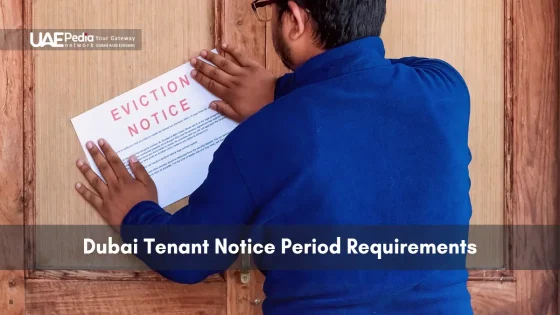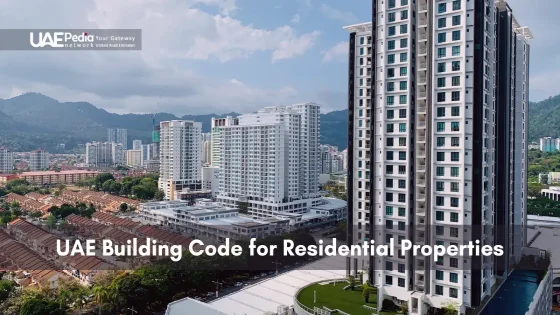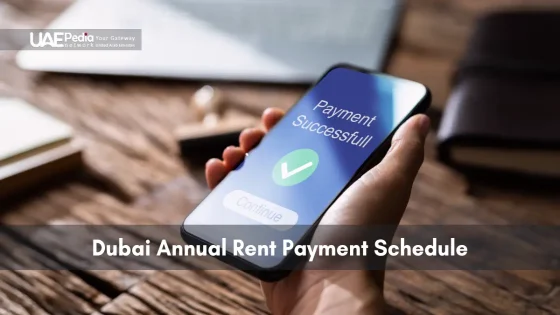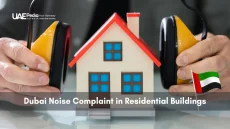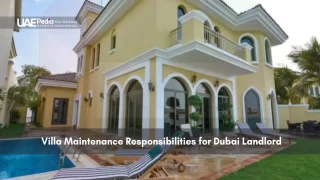Did you know that a simple piece of paper can make or break your rental experience in the UAE? While Dubai’s skyline dazzles with futuristic designs, its rental rules blend modern efficiency with time-tested legal clarity. Whether you’re leasing a sunlit apartment or a cozy villa, understanding the essentials keeps surprises at bay.
Rental agreements here thrive on clear communication. Written notifications aren’t just paperwork—they’re your golden ticket to smooth transitions. Both parties benefit when terms are outlined plainly, avoiding misunderstandings that could turn a routine move into a bureaucratic waltz.
Think of proper documentation as your safety net. Using registered mail or notarized steps ensures everyone’s on the same page—literally. This isn’t just about rules; it’s about fostering trust in a city where cultures and contracts intersect daily.
We’ll walk through how these practices protect your interests, streamline processes, and honor Dubai’s unique blend of tradition and innovation. Ready to unlock the details?
Dubai Tenant Notice Period Requirements mandate that landlords issue a 12-month written notice for non-renewal or owner-occupancy evictions and a 90-day notice for lease renewals or rent increases. Notices must include clear dates, reasons and be delivered via registered mail or notarized channels to ensure legal validity and proof of receipt.
Tenants must submit termination or renewal requests in writing with dated signatures and retain delivery receipts. Disputes over notices are adjudicated by the Rental Dispute Settlement Centre, which bases decisions on documented evidence and adherence to statutory timeframes.
- Written notices are non-negotiable safeguards for renters and property owners.
- Legal validity hinges on methods like registered delivery or official notarization.
- Clear communication prevents disputes in a fast-paced rental market.
Understanding Dubai Tenant Notice Period Requirements
Timing is everything when navigating rental transitions in the Emirates. Imagine planning a move only to realize you missed a deadline buried in legal jargon—yikes! Let’s decode the rules so you glide through paperwork like a pro.
Key Legal Provisions and Timeframes
UAE tenancy laws act like traffic lights—they keep everyone moving smoothly. For non-renewals, landlords must provide 12 months’ advance notice unless there’s a lease violation. Rent hikes or renewal terms? Those require a 90-day heads-up. As one legal advisor puts it:
“Missing these windows isn’t just inconvenient—it’s like showing up to a desert safari without sunscreen.”
Why the strict timelines? They prevent abrupt changes in a market where housing shifts faster than sand dunes. Using registered mail or notary services isn’t optional—it’s your proof if things get windy. Think of it as leaving breadcrumbs for future-you.
Overview of Tenant and Landlord Obligations
Both sides share responsibility. Renters must submit written requests properly—no sticky notes on the door! Property owners need valid reasons for evictions, like renovations or owner occupancy. Surprise inspections? Nope. Clear communication is key.
If disputes arise, the Rental Dispute Settlement Centre steps in. Their role? Think of them as referees in a high-stakes game where everyone plays fair. Document every interaction—even a quick text could save headaches later.
Read More:
Legal Framework and Lease Termination Procedures
In the world of leases, ink holds more power than you might think. UAE tenancy laws operate like architectural blueprints—they define boundaries while allowing flexibility. Let’s unpack how these rules shape exits and transitions.
Relevant UAE Tenancy Laws
The law favors clarity over chaos. Article 14 of the UAE Civil Code requires written agreements for any lease changes or terminations. Why? Verbal deals vanish faster than morning fog on Sheikh Zayed Road. Courts prioritize dated, signed documents—whether it’s a renewal request or a goodbye letter.
Consider Ahmed, a renter who emailed his landlord about moving out. Without a stamped notice, his deposit hung in limbo for weeks. Legal advisor Layla Al-Mansoori notes:
“Paper trails aren’t bureaucracy—they’re your shield in a city where towers rise overnight.”
Mandatory Written Consent for Termination
Handshakes won’t cut it here. Both parties must sign termination forms—even if they’re parting amicably. This isn’t just red tape; it prevents “I thought we agreed…” scenarios. Landlords can’t claim renovations without permits, and renters can’t vanish mid-lease without consequences.
Imagine receiving a rent hike via WhatsApp. Legally, it’s a maybe. Registered mail? That’s a yes. The system protects everyone but demands diligence. Keep copies, track dates, and when in doubt—hit send on that registered envelope.
- Laws require dated signatures for validity—no exceptions
- Digital messages lack weight unless backed by official channels
- Disputes often hinge on who documented what (and when)
Serving a Notice: Methods and Legal Requirements
Navigating the maze of rental notifications feels like deciphering ancient scrolls—until you learn the magic words. Proper delivery methods aren’t just formalities; they’re your legal armor in a market where a misplaced comma could cost you thousands.
Using Registered Mail and Notary Public
Let’s break down the process. First, draft your termination letter with crystal-clear dates and reasons. Then:
- Send via registered mail with acknowledgment receipt—track it like your morning coffee order
- Visit a notary public to stamp copies, creating an unshakable paper trail
- Store digital backups like you’re guarding treasure maps
Why the fuss? As legal consultant Farah Al-Hamadi explains:
“An email might vanish into cyberspace, but that green postal receipt? That’s your golden ticket in court.”
Consider this scenario: A landlord tried evicting a renter via WhatsApp. The court tossed it faster than expired hummus. Why? No official stamp. Proper documentation turns “he said/she said” into ironclad facts.
Watch for these slip-ups:
- Using regular email instead of registered channels
- Missing signature dates—like a cake without flour
- Assuming verbal agreements hold weight (spoiler: they don’t)
Stick to the script, and you’ll glide through transitions smoother than a sunset dhow cruise. Your future self will thank you when disputes dissolve like sugar in karak chai.
12-Month Notice for Non-Violation Evictions
Picture this: You’re sipping karak tea while planning your next move, only to realize the clock started ticking months ago. Non-violation evictions—like property sales or owner reclamations—require careful timing. Unlike abrupt exits, these scenarios follow a strict calendar where every day counts.
When and How to Issue a 12-Month Notice
Landlords must act when reclaiming units for personal use or preparing properties for sale. The law demands a full year’s heads-up—no shortcuts. Here’s how to get it right:
- Draft a letter stating specific reasons (renovation plans, sale contracts) and the exact vacate date
- Attach supporting documents like ownership certificates or renovation permits
- Send via registered mail with tracking—consider it your receipt for legal peace of mind
Legal advisor Rashid Al-Mehairi puts it bluntly:
“A verbal ‘I need the place back’ won’t hold up. Courts want dates stamped and reasons spelled out—think of it as writing love letters to bureaucracy.”
| Method | Validity | Time Stamp |
|---|---|---|
| Registered Mail | High | Postmark Date |
| Notary Public | Highest | Notarization Date |
| Digital Platforms | Conditional | Delivery Receipt |
Take the case of a Jumeirah landlord who sent notices six months late. The court ruled in the renter’s favor, granting extra stay time. Proper paperwork isn’t just red tape—it’s your shield in a fast-paced market where towers change hands faster than falafel orders.
90-Day Notice for Lease Renewals and Rent Increases
Imagine a clock ticking down your next housing decision—that’s the 90-day window in action. This timeframe isn’t arbitrary; it’s designed to give everyone breathing room to plan their next move thoughtfully. Whether adjusting terms or continuing a lease, timing transforms uncertainty into clear next steps.
Steps for Issuing Proper Rent Increase Notifications
Landlords must follow specific rules when proposing changes. First, draft a formal letter detailing the new terms. Include:
- Exact percentage or amount increase
- Comparison to local market rates (optional but strategic)
- Reference to the relevant tenancy laws
One expat’s story illustrates why this matters. When Sara received a 25% hike notice via text, she invoked her rights to negotiate. “The law requires proper channels,” her legal advisor noted. “We reduced the increase to 12% through mediation.”
| Notice Method | Proof of Delivery | Tenant Response Window |
|---|---|---|
| Registered Mail | Tracking Number | 30 days |
| Notarized Letter | Official Stamp | 30 days |
| Email + SMS | Read Receipts | 15 days* |
*Requires prior agreement in lease terms
Mark your calendar religiously. Serving notices 91 days before expiry? Perfect. Day 89? You’ve just entered dispute territory. As property manager Khalid Al-Farsi advises:
“Treat deadlines like sunrise desert hikes—start early, and you’ll avoid the midday heat.”
These rules aren’t constraints—they’re guardrails. When both parties honor the 90-day laws, transitions feel less like chess matches and more like coordinated dance routines. Documentation becomes your rhythm section, keeping every move in sync.
Tenant’s Rights and Obligations in the Notice Process
What if your rental history could speak for itself? In the Emirates, your paper trail often does the talking. Proper documentation isn’t just about compliance—it’s your silent ally in a system where clarity reigns supreme. Let’s unpack how to turn every email, text, and stamp into your personal shield.
Ensuring Your Written Notice is Legally Valid
Your notice holds power only if it ticks specific boxes. Start by including three non-negotiables:
- Exact move-out or renewal date
- Reason for termination (if required)
- Signatures from both parties
| Notice Type | Essential Elements | Common Pitfalls |
|---|---|---|
| Lease Termination | Dated signatures, registered proof | Missing RERA index number |
| Rent Increase | Market rate comparison, 90-day notice | Verbal agreements without backup |
| Dispute Initiation | Case reference numbers, receipts | Using personal email instead of official portals |
Legal advisor Amira Khalid shares:
“A notice without a postmark is like a camel without a hump—it won’t get you far in the desert of bureaucracy.”
Documenting Communication with Your Landlord
Treat every interaction like potential evidence. Save texts, emails, and even voice memos. When Fatima faced an unexpected eviction claim, her folder of WhatsApp screenshots became the star witness at the Dispute Settlement Centre.
Follow this 3-step routine:
- Date-stamp every conversation
- Store physical copies in a fireproof folder
- Backup digital files to cloud storage
The Rental Dispute Settlement Centre reviews cases faster when paperwork flows like Arabic coffee—smooth and strong. Remember: your right to fair treatment hinges on what you can prove, not just what you promise.
Handling Early Termination of a Tenancy Contract
Ever wondered what happens when life throws a curveball during your lease? Exiting a rental agreement early isn’t like canceling a streaming subscription—it requires strategic navigation through legal fine print. Exit clauses act as emergency exits, but only if you know how to unlock them.
Exploring Exit Clauses in Your Lease Agreement
These contractual provisions let either party exit under predefined conditions—job relocation, health crises, or property defects. Legal expert Nadia Al-Tamimi clarifies:
“An exit clause without proper documentation is like a desert mirage—it looks real until you need it.”
| Scenario | Documentation Needed | Timeframe | Outcome |
|---|---|---|---|
| Job Loss | Employment termination letter | 60 days | Penalty waiver if approved |
| Safety Hazards | Municipal inspection report | Immediate | Early release |
| Relocation Abroad | Visa/work contract copies | 90 days | Partial refund |
The Dubai Land Department reviews these cases like master chess players—every move must follow specific rules. Submit your request through their online portal first. Then, provide notarized evidence matching your lease’s exit terms.
Here’s how to activate your clause smoothly:
- Review your tenancy contract’s termination section
- Gather certified proof of qualifying circumstances
- Submit through official channels with tracking
Miss the notice window? Penalties can range from one month’s rent to full deposit forfeiture. Treat timelines like sunrise yoga sessions—arrive early, and you’ll find peace.
Landlord Responsibilities and Eviction Guidelines
Behind every smooth property transition lies a roadmap only seasoned landlords know. Managing exits requires precision—like constructing Burj Khalifa-level plans with LEGO-block attention to detail. Owners must balance legal obligations with maintaining trust in a fast-paced market.
Required Procedures for Valid Eviction
Emirati property laws set clear guardrails. Start with a 90-day written notice for lease non-renewals, delivered via registered mail. Valid reasons like major renovations or owner occupancy must be stated clearly—no vague “personal use” claims. As legal consultant Youssef Mansour advises:
“Treat eviction paperwork like concert tickets—lose the stub, and you’re stuck outside the show.”
Common missteps? Skipping notarization or using SMS alerts instead of official channels. One landlord learned this the hard way when their WhatsApp notice dissolved faster than ice in August heat. The Rental Dispute Centre ruled in favor of the occupant, citing improper delivery.
| Action | Requirement | Risk if Ignored |
|---|---|---|
| Serving Notice | 90-day written letter | Case dismissal + fines |
| Stating Reasons | Specific permitted causes | Invalidation of claim |
| Document Storage | 5-year retention | Loss of legal defense |
Early termination requests demand extra care. Owners should review contracts for exit clauses before approving—unilateral decisions can tarnish real estate reputations. A Marina tower manager shares: “We’ve seen 40% fewer disputes since adopting digital tracking for all notices.”
Aligning with local regulations isn’t just about compliance—it’s about building lasting relationships in a city where skyscrapers and trust rise together. Proper procedures turn potential conflicts into handshake transitions.
Navigating Dispute Settlement and Rental Disputes
When rental disagreements feel like sandstorms blocking your path, the Rental Dispute Settlement Centre becomes your compass. This specialized body operates like a cultural souk for conflict resolution—bringing parties together under structured guidance while respecting local norms.
The Role of the Rental Dispute Settlement Centre
Think of the Centre as your negotiation GPS. They review cases ranging from contested rent increases to ambiguous termination notices. Their process:
- Initial mediation within 15 days of filing
- Evidence review (leases, written notices, payment records)
- Binding decisions if parties can’t agree
Legal advisor Mariam Al-Hashimi shares:
“They’re not just judges—they’re cultural translators who understand both contract law and community values.”
Effective Strategies for Resolving Conflicts
Avoiding disputes starts before signing your lease agreement. Draft clear terms about maintenance responsibilities and renewal procedures. If tensions arise:
- Exchange dated letters via registered channels
- Propose compromise solutions (phased rent increases, flexible move-out dates)
- Request third-party mediation early
| Conflict Type | Resolution Strategy | Success Rate |
|---|---|---|
| Unapproved Rent Hike | Market rate comparison + negotiation | 68% |
| Eviction Notice Dispute | Registered mail verification | 82% |
| Deposit Deductions | Move-in/move-out photo evidence | 91% |
Consider the case where a family challenged a 20% rent increase without proper written notice. The Centre ruled the hike invalid, saving them AED 15,000 annually. Clear documentation turned a potential courtroom battle into a quick handshake resolution.
Tips for Complying with Dubai Tenancy Laws
Crafting rental paperwork might seem as thrilling as watching sand settle—until you realize it’s your key to hassle-free transitions. Let’s transform this chore into your secret weapon for seamless agreements.
Building Bulletproof Documents
Start with clear language that even your coffee barista could understand. Legal expert Jamal Al-Rashid advises:
“A notice without a notary public’s stamp is like a camel without a saddle—functional but unstable in rough terrain.”
Follow this recipe:
- Use plain English with dates highlighted like festival dates
- Include both parties’ full legal names and Emirates ID numbers
- Seal the deal with a notary public’s stamp—your golden ticket
Your Action Plan
| For Renters | For Owners |
|---|---|
| Confirm move-out date matches lease terms | Attach RERA-approved rent increase calculator |
| Keep registered mail receipts for 2+ years | Provide maintenance records if disputing damages |
| Request notary public verification within 48 hours | Share updated contact details for official correspondence |
Landlords and tenants often trip over these speed bumps:
- Assuming WhatsApp messages count as formal notices
- Forgetting to update contact information annually
- Ignoring the notary public step to “save time”
Treat every document like a treasured family recipe—precise, tested, and worth preserving. When both parties prioritize clarity, you’ll build trust faster than skyscrapers rise on Sheikh Zayed Road.
Check out the below:
Wrapping Up Your Notice Period Process
Navigating rental agreements in the Emirates is like charting a desert course—knowing the landmarks ensures you reach your oasis without getting lost in legal sandstorms. Whether adjusting terms or closing a chapter, clarity and compliance keep both parties grounded.
Always anchor changes in the legal framework. Registered mail and notary stamps transform casual agreements into binding commitments. Landlords must justify major decisions like evictions, while renters should honor timelines as tightly as flight departures.
Your action plan? Draft precise letters with specific dates. Store delivery receipts like precious spices—they’ll flavor any dispute resolution. The Rental Dispute Settlement Centre stands ready to mediate, but thorough documentation often prevents needing that detour.
Before sealing envelopes or digital files, ask: Does this align with local laws? Could a quick legal consult smooth the path? Treat each step as part of a shared journey—one where preparation meets cultural respect, creating transitions as seamless as sunset over the dunes.
Landlords must follow strict eviction guidelines under UAE tenancy laws. If they fail to provide a valid 12-month notice via registered mail or notary public for non-violation cases, you can challenge the action through Dubai’s Rental Dispute Settlement Centre. Always keep copies of communication!
No. Rent increases require a 90-day written notice before lease renewal and must align with Dubai Land Department’s rental index. If your landlord skips this step or exceeds the permitted percentage, you’re entitled to dispute the hike legally.
Use registered mail with tracking or visit a notary public to formalize delivery. These methods create a paper trail recognized by authorities like the RDSC. Screenshots of emails or texts won’t hold up in formal disputes—stick to official channels.
Tenants can withhold rent or request early termination if landlords breach upkeep obligations outlined in the tenancy contract. Document all requests and responses, then file a case with the dispute centre if unresolved. Your peace of mind matters!
Absolutely. Discuss terms like early termination fees or flexible notice periods upfront. Ensure any agreed-upon changes are added to the contract and attested by Dubai’s Real Estate Regulatory Agency. Don’t settle for vague wording—clarity protects everyone.
Yes, but only if they provide a 12-month eviction notice through legal channels. Valid reasons for non-renewal include personal use, major renovations, or selling the property. Arbitrary refusal without proper notice? That’s your cue to involve the RDSC.
Start with open communication—many disputes stem from misunderstandings. If talks stall, submit evidence (bank statements, messages) to the Rental Dispute Settlement Centre. Their mediation process often resolves issues within weeks, avoiding lengthy court battles.
